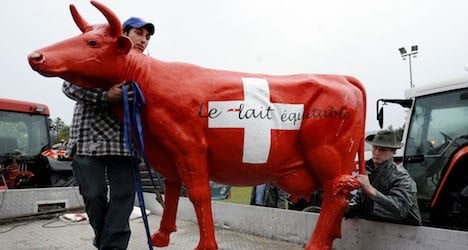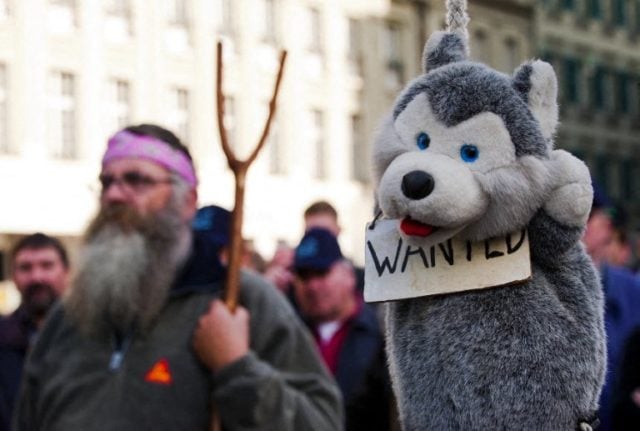From April 1st the price of a kilo of category A milk – destined for the domestic market – will drop from 68 centimes to 65 centimes, the lowest price since 2011.
That's despite farmers saying the current price doesn’t cover production costs as it is.
Last October farmers demonstrated in the Swiss capital Bern on the issue, calling for the price to be maintained at 68 centimes.
In a statement, milk industry body BO Milch said “The decrease represents further deterioration to an already difficult situation for milk producers” but that tricky market conditions meant the move was “inevitable”.
The body pointed to a recent increase in milk production both in Switzerland and abroad, and said that Swiss stocks of butter were higher now than at any time in the past six years.
“We observe a loss of market share by the Swiss milk economy in nearly every part of the market,” it added.
BO Milch also said the price gap between Swiss milk and milk from the European Union was now bigger than ever, at 30 centimes.
The price of category A milk is fixed each trimester by BO Milch, and remains a crucial reference point for price negotiations within the market.
There are two other sectors within the milk market: category B, milk that is exported to the EU; and category C, which is exported globally.
Last November Swiss media reported that some farmers are being driven to suicide over their inability to make ends meet.
The Swiss Farmers’ Union (SBV) said at the time that prices for milk, sugar and pork are “disastrous” and many farms are teetering on the brink.



 Please whitelist us to continue reading.
Please whitelist us to continue reading.
Member comments